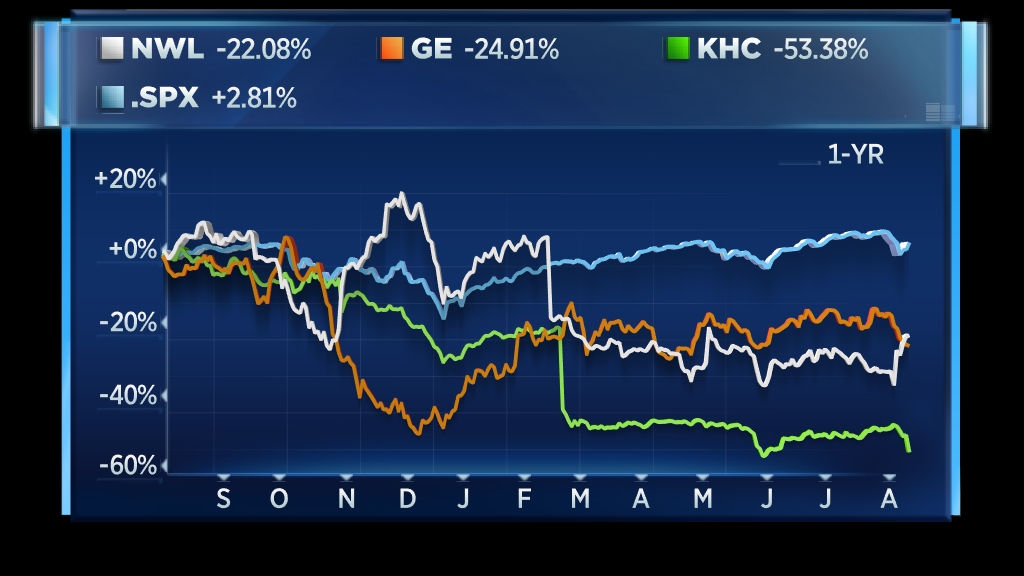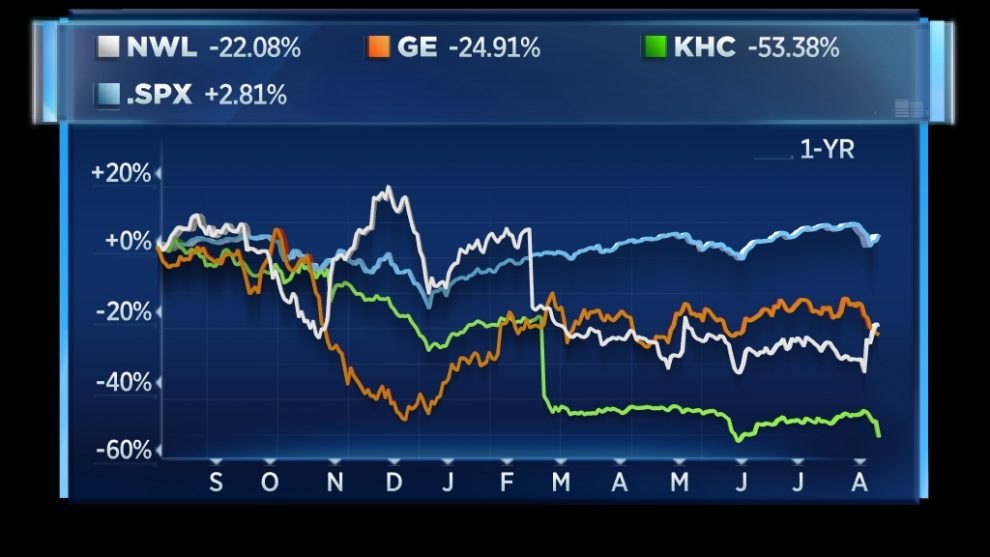Dara Khosrowshahi, chief executive officer of Uber Technologies Inc., speaks on a webcast during the company’s initial public offering (IPO) on the floor of the New York Stock Exchange (NYSE) in New York, U.S., on Friday, May 10, 2019.
Michael Nagle | Bloomberg | Getty Images
Uber’s $5.2 billion second-quarter loss is big on its face.
But it seems even bigger when you consider this — only three companies in the S&P 500 lost that much money in all of 2018.
The ride-hailing company, which held its stock market debut in May, attributed most of its quarterly deficit to stock-based compensation. Excluding that expense, Uber’s losses were around $1.3 billion, or roughly 30% wider than the prior period.
High stock-related compensation costs are normal for Silicon Valley companies. Equity packages are the price of luring talented engineers who could otherwise command bigger salaries at more established companies. Eventually those options and restricted stock units vest, and the companies then have to account for the costs.
Snap recorded a $2 billion expense in its first post-IPO earnings report in 2017. On Wednesday, Lyft reported a $296.6 million stock-compensation expense following an $894 million cost in the previous quarter.
Stil, Uber’s quarterly loss is eye-popping for investors who are used to companies being well on their way to sustainable profits by the time they reach such a lofty market cap. As of Thursday’s close, Uber was worth $67.3 billion, which would make it the 84th most valuable company in the S&P 500, if it were in the index.

Uber shares traded roughly 8% lower in premarket trading on Friday.
“We think that 2019 will be our peak investment year and we think that 2020, 2021, you’ll see losses come down,” CEO Dara Khosrowshahi told CNBC.
Among S&P 500 companies, only 26 lost money in 2018. The only three to lose more for the year than Uber lost in the second quarter were General Electric ($20.6 billion), Kraft Heinz ($10.2 billion) and Newell Brands ($6.8 billion).
GE’s massive deficit was the result of a $23 billion charge taken in the third quarter last year for its struggling power business. At the same time of that announcement in October, the company abruptly removed CEO John Flannery after only a year on the job.
In the fourth quarter, Kraft Heinz slashed the value of its Kraft and Oscar Mayer brands by $15.4 billion, leading to a 27% plunge in the stock price in one day. The performance was even a shock to Warren Buffett, who admitted in February that “we overpaid for Kraft.” In 2013, he teamed with Brazilian private equity firm 3G to acquire Heinz and two years later helped merge it with Kraft.
Newell took an $8.1 billion non-cash impairment in the third quarter last year. The owner of Sharpie, Coleman and Rubbermaid brands said earlier in the year that it was exploring strategic options for at least 10 of its industrial and consumer businesses. The company had been consistently missing earnings reports and, with its stock tanking, recorded the charge “primarily related to impairment of goodwill and trade names, the majority of which is attributable to the impact of the decline in the company’s market capitalization during the third quarter.”
Kraft has been the worst performer of the three in the past year, with its stock down 53%. GE has dropped 24%, and Newell is down 22%.
The S&P 500 is up 2.8% over that stretch, climbing to a record high last month.












